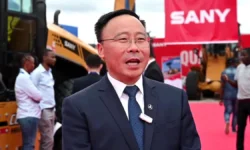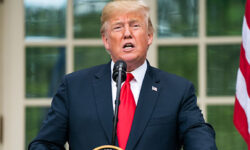The global carbon market reached a record value of $949 billion in 2023. In Africa, carbon markets provide the continent with strategic opportunities to trade world-class carbon and leverage renewable resources to generate new credits, contributing to global climate goals and generating new revenue streams. The African Carbon Markets Initiative (ACMI) was launched at the COP27 summit in Egypt, poised to unlock billions of dollars for climate finance and economic development in Africa. The initiative aims to generate 300 million carbon credits per year and create up to 30 million jobs by 2030.
Kenya
In June 2023, a carbon market auction was held in Nairobi where over 2.2 million tons of carbon credits were sold, making it the largest carbon credit auction in the world. The auction was organized by the Regional Voluntary Carbon Market Company, a carbon credit trading and investment platform.
Notable carbon projects in Kenya include the Northern Rageland Trust Carbon Project, which aims to eliminate 50 million tons of CO2 (carbon monoxide).
Gabon
In October 2022, Gabon announced it would provide credits for more than 90 million tons of carbon under a UN-led program to reduce emissions from deforestation and deforestation. The price is expected to be between 25-35 thousand dollars per credit.
Gabon is considered the second most forested country in the world and is the first country to provide carbon credits under the UN’s Framework Convention on Climate Change to prevent deforestation and degradation.
Malawi
The carbon market potential in Malawi is estimated at around 19 million tons per year. Following assessments under the country’s Clean Development Mechanism and REDD+, the Government of Malawi has approved 11 carbon trading projects dealing with the distribution of environmentally benign kitchen stoves.
Mozambique
With an estimated 45 million carbon credits available for trading, Mozambique became a member of ACMI in June 2023, and the country is preparing to participate in international carbon markets and projects. The Mozambican government is developing plans to activate its market presence in the carbon trading sector. Estimates suggest that the country could generate between 10-25 million carbon credits and earn between 200-500 million dollars per year.
Togo
In March 2023, the government of Togo adopted a new decree to strengthen the country’s carbon management mechanisms and support efforts to help increase carbon storage. Committed to collaborating with ACMI to scale up carbon credit generation, the government of Togo is poised to grow the voluntary carbon market through the implementation of management mechanisms and certified climate action projects.
Nigeria
Last February, Nigeria’s Vice President Kashim Shettirma inaugurated the committee of key ministries and departments for the country’s ACMI-approved Carbon Market Activation Plan. The project aims to support a sustainable carbon market in Nigeria worth $2.5 billion and facilitate the implementation of policies that foster an efficient carbon market ecosystem.
Burundi
As part of Burundi’s nationally determined contribution to reduce greenhouse gas emissions, the country aims to reduce approximately 16.86 million tons of CO2. A 23% reduction is targeted by 2030.
In July 2022, Burundi registered its first clean development mechanism under the verified carbon standard offset program, which aims to deliver 82,300 carbon credits to the country’s carbon trading market.
Rwanda
Rwanda’s carbon market, which launched its National Carbon Market Framework at the COP28 summit in Dubai, will work on a cap-and-trade system that will allow businesses to buy and sell carbon credits.The framework, which is set to provide economic incentives for companies to reduce their carbon footprint, is expected to help increase transparency and trust among carbon traders in the country.

















